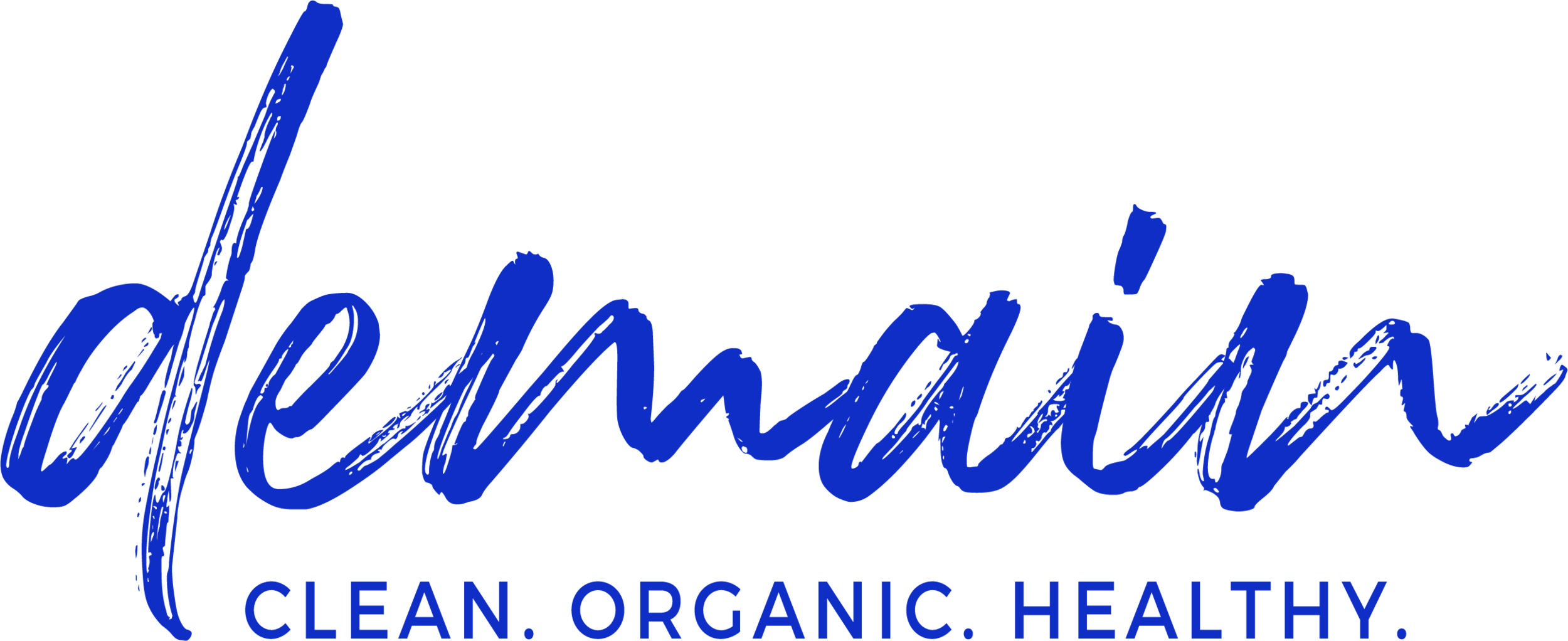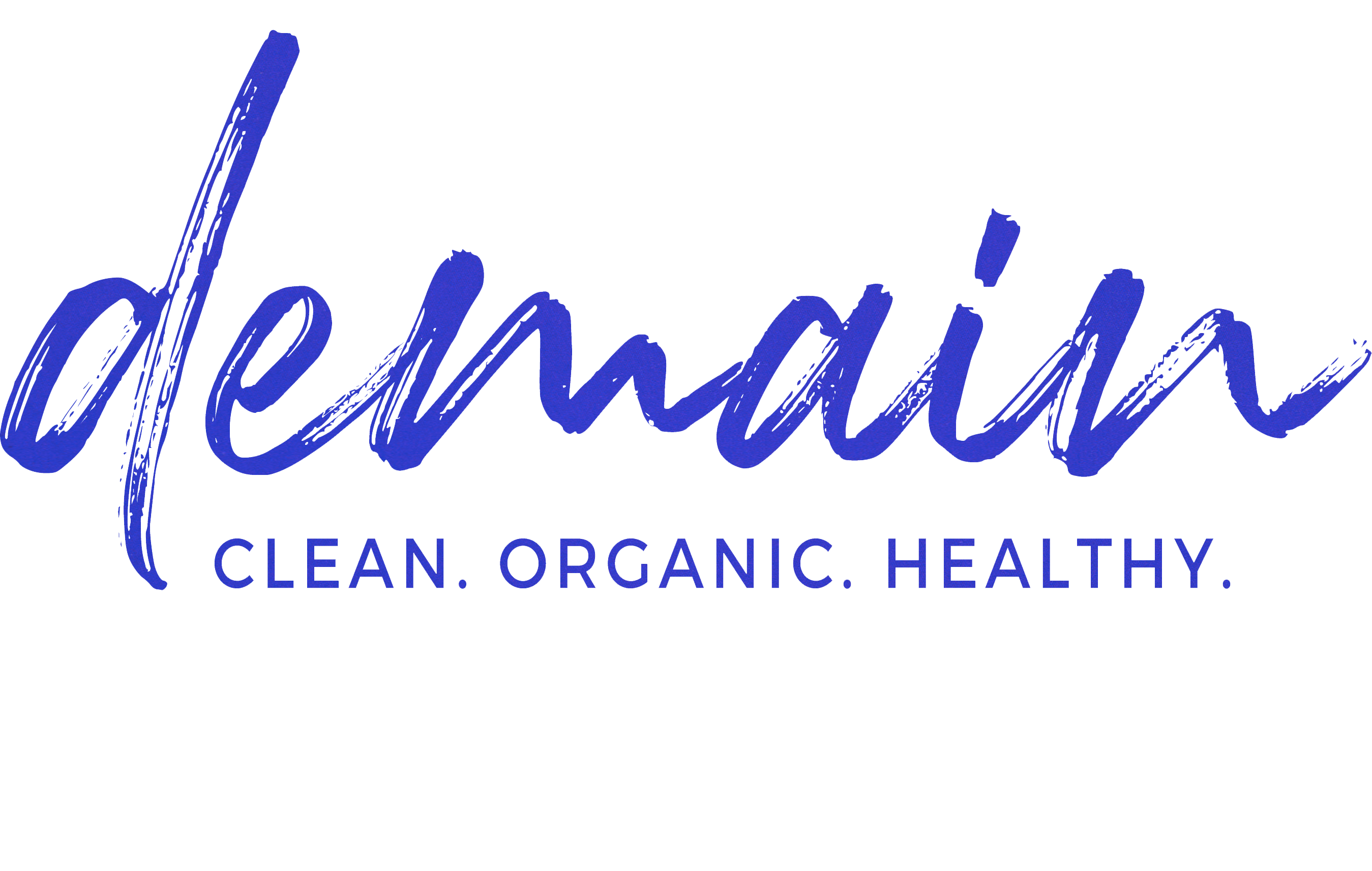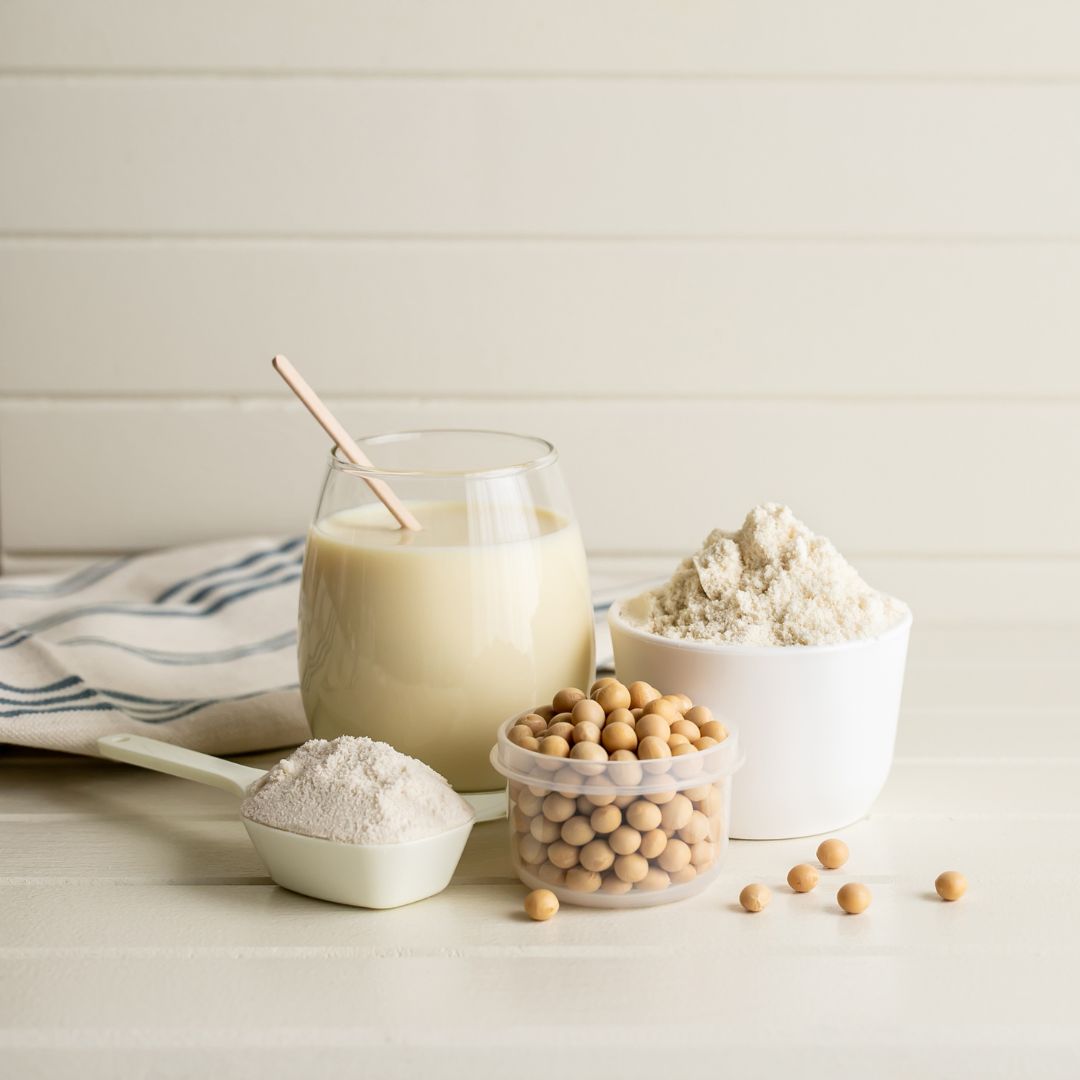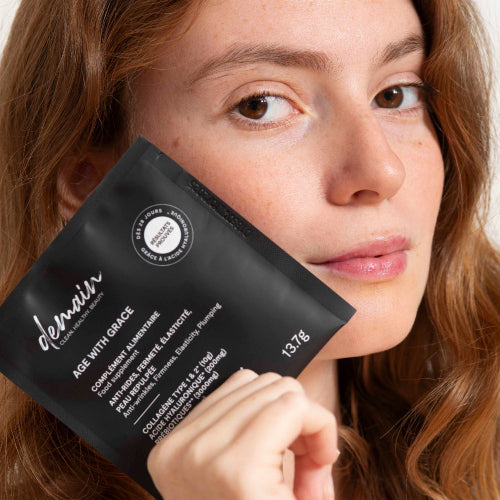What are proteins?
Like carbohydrates and lipids, which primarily provide energy, proteins are macronutrients essential for the proper functioning of the body and are present in all living cells. They are composed of amino acids, which are linked together by peptide bonds. Proteins play an essential role in many biological functions and vital processes in the body.
What is the role of proteins?
Proteins play a structural role because they are part of the composition of our support tissues (muscles, bones, hair) and participate in the cellular renewal of muscle tissue, skin and bone tissue.
They are made up of 20 amino acid chains, including 8 essential ones that the body cannot produce and which must be provided by food during the same meal.
Here are some of their main functions:
- Cell and Tissue Structure : Proteins are the main structural components of the body's cells and tissues. They help form and maintain the structure of cells, organs, muscles, skin, hair, nails, and other parts of the body.
- Enzyme Functions : Many proteins act as enzymes, which are biological catalysts that speed up chemical reactions in the body. Enzymes enable vital processes such as food digestion, protein synthesis, energy production, and the detoxification of harmful substances.
- Transport of substances : Certain proteins, such as hemoglobin, are responsible for transporting essential substances, such as oxygen, nutrients, and hormones, throughout the body. They ensure the efficient delivery of these substances to cells and tissues.
- Immune Functions : Antibodies, which are proteins of the immune system, play a key role in defending the body against infections and pathogens by recognizing and neutralizing foreign substances, such as bacteria and viruses.
- Cellular communication : Certain proteins act as cellular messengers and are involved in transmitting signals between cells, thus regulating various biological processes such as growth, cell differentiation, and response to environmental stimuli.
In summary, proteins are essential components of life, playing diverse and crucial roles in the functioning of the organism, from cellular structure to the regulation of biological processes.
Why is it important to have sufficient protein intake?
Protein needs are daily because our supporting tissues renew themselves at a rate of 250 to 300g per day. Protein plays a crucial role in:
- Tissue Building and Repair : Proteins are the basic building blocks of body tissues, including muscles, skin, hair, nails, and organs. Adequate protein intake is essential for the growth, repair, and maintenance of these tissues.
- Enzyme and Hormone Synthesis : Proteins play a crucial role in the synthesis of enzymes and hormones, which are needed to regulate many bodily functions, including digestion, metabolism, and hormonal regulation.
- Immune system support : Some components of the immune system, such as antibodies, are proteins. Therefore, adequate protein intake is important to maintain a strong and functioning immune system.
- Energy source : Although carbohydrates and fats are generally the main sources of energy, in the absence of sufficient carbohydrates and fats, the body can use protein as an energy source. However, this is not optimal because protein is better used for other functions in the body.
- Saturation and appetite control : Protein is often more satiating than carbohydrates or fat, which can help control appetite and prevent overeating.
Additionally, protein intake will help you gain or maintain muscle mass. This is ideal for specific sports training, particularly for fitness or running. Of course, any physical activity, combined with a healthy diet, will be beneficial for maintaining a healthy body.
For children and pregnant women, we recommend contacting a healthcare professional, such as your general practitioner, who will be able to advise you best.

What are the symptoms of a protein deficiency?
An insufficient protein intake would force our body to draw the necessary resources from our organism and would lead to:
osteoporosis
How to calculate your protein needs?
Our protein needs are calculated as follows: multiply your weight in kg by 0.8 and you will get your daily protein intake needs in grams. For example: a person weighing 60 kg should consume 48 g of pure protein per day.
NB: Since the digestibility of plant proteins is less important than that of animal proteins, a vegetarian will apply the ratio 1/1 to calculate his protein requirement, i.e. 1g of protein per kilo. (We will see this in detail later).
What foods contain protein?
Proteins are classified into 2 categories:
- Animal proteins: red meat, white meat, fish, eggs, cheese
- Plant proteins: cereals, legumes, oilseeds, mushrooms, algae
These foods are rich in protein and recommended in the daily diet.
What are legumes?
Legumes are "seed" vegetables: they are beans, soybeans, dried white beans (lingot, mogette), red beans (azuki), mung beans, lentils (green, coral), lupin and peas (split, chickpea, dried).
What are oilseeds?
These are "oil seeds": peanuts, groundnuts, walnuts, hazelnuts, almonds, cashew nuts, rapeseed, sesame, sunflower, flax, grape seeds, pumpkin seeds, chia seeds... Or oil fruits: olives, coconut, palm... They contain proteins but are rather very rich in lipids.
How to calculate the protein intake of foods?
Consuming 100g of animal or plant protein doesn't mean 100g of "pure" protein is absorbed. Protein content varies depending on the food. To help you build your ideal meal plan, here's the average protein/food weight per 100g.
What foods are rich in protein?
Here is a list of foods rich in protein:
- Lean meats: chicken, turkey, veal, lean beef.
- Fish: salmon, tuna, trout, mackerel, sardines.
- Eggs: Rich in protein, especially egg whites.
- Dairy products: Greek yogurt, cottage cheese, cheese, milk.
- Legumes: lentils, chickpeas, black beans, kidney beans.
- Tofu and other soy-based meat substitutes.
- Nuts and seeds: almonds, cashews, sunflower seeds, pumpkin seeds.
- Chia and flax seeds.
- Quinoa and other whole grains.
- Peanut butter and other nut butters.

What are the best proteins?
Choosing the best protein depends on several factors, including your health or fitness goals, your dietary preferences, and possibly any specific dietary restrictions or needs. Here are some of the best natural protein sources:
- Lean meat : Lean meats, such as chicken, turkey, lean beef, and fish, are excellent sources of high-quality protein. They also provide important vitamins and minerals, such as iron and zinc.
- Fish and Seafood : Fish is an excellent source of protein, especially varieties rich in omega-3 fatty acids, such as salmon, mackerel, and sardines. Seafood such as shrimp, mussels, and oysters are also rich in protein and essential nutrients.
- Eggs : Eggs are a complete and economical source of protein. They also provide vitamins, minerals, and essential fatty acids. Most of the protein is found in the egg white, while the yolk contains healthy fats and other nutrients.
- Dairy products : Milk, Greek yogurt, cottage cheese, and cheese are good sources of protein, calcium, and other nutrients. Their protein content varies, but they can make up a significant portion of daily protein intake for many people.
- Legumes : Beans, lentils, chickpeas, and other legumes are excellent sources of plant-based protein, rich in fiber, vitamins, and minerals. They can be particularly helpful for those following a vegetarian or vegan diet.
- Nuts and Seeds : Nuts, seeds, and nut butters are rich in protein, healthy fats, and fiber. They can be eaten alone as a snack or added to meals and recipes to boost protein intake.
It's important to diversify the protein sources in your diet to get a wide range of nutrients. In general, proteins from whole, natural sources are often considered the best options for optimal health.
The "true" digestibility of proteins
That being said, the digestibility of these proteins must still be taken into account. As seen above, a protein of good nutritional quality contains the 8 essential amino acids, the only guarantee of good assimilation. However, only animal proteins contain 100% of the essential amino acids. Unlike meat and fish, plant proteins do not contain 100% of the amino acids essential for the proper functioning of our body.
And a limiting factor applies... In fact, it is the lowest amino acid intake that will determine the assimilation rate of all the other amino acids. If 1 amino acid out of 8 is missing from your diet, it is equivalent to not having any at all!
What protein should you eat every day?
The egg, protein superstar
Eggs can be said to be an excellent source of protein because they not only contain all 8 essential amino acids, but they are 100% digestible. Therefore, it is possible to eat eggs every day.
Daily egg consumption can be included in a balanced diet for most people, but it depends on individual nutritional needs, food preferences, and overall health. Here are some points to consider:
- Nutrient-rich : Eggs are an excellent source of high-quality protein and also contain vitamins, minerals, essential fatty acids, and antioxidants, such as vitamin A, vitamin D, vitamin B12, iron, and zinc.
- Weight Control : Eggs are rich in protein and nutrients while being relatively low in calories, which can promote satiety and aid in weight control when eaten as part of a balanced diet.
- Cholesterol : Eggs are also high in cholesterol, which has been a topic of debate regarding cardiovascular health. However, for most healthy people, moderate egg consumption (up to one egg per day for most individuals) generally does not have a significant effect on blood cholesterol levels. However, people with a history of cardiovascular disease or high cholesterol should consult their doctor to determine the appropriate amount of eggs for their situation.
- Food allergies : Some people may be allergic to eggs, so it is important to take this into consideration.
Animal proteins versus plant proteins
Animal proteins are only assimilated at a rate of 80 to 100% and vegetable proteins between 40 and 80% (40% for vegetables, 80% maximum for legumes). It is therefore understood that a vegetarian will have to consume twice as much protein as a non-vegetarian to cover their daily protein needs.
The law of complementation...
...or why it is essential to always eat cereals with legumes
Since a protein must contain all 8 essential amino acids to be properly assimilated and we know that plant proteins are naturally deficient in essential amino acids, we also understand that it is essential to combine plant proteins with each other to cover all of our needs and avoid suffering from deficiencies.
So, if you are eating a vegetarian meal, it is essential to combine a legume intake with oilseeds or cereals.
What proportions should be respected?
3 to 4 parts cereals to 1 part legumes: couscous-chickpeas, lentils-rice, red beans-rice, bread-hummus.
Here you will find traditional dishes from all regions of the world!
Beware of antinutrients and anemia
To ensure good digestibility/assimilation of plant proteins, care must also be taken to avoid anti-nutrients.
What are antinutrients?
Antinutrients are molecules that prevent the digestion of nutrients by neutralizing the effects of digestive enzymes.
Legumes and oilseeds contain antinutrients (which primarily protect them from bacteria and sprouting) and phytic acid, which limits nutrient absorption, and enzyme inhibitors that make digestion difficult. All of this impairs the proper digestibility of proteins.
Beyond limiting the digestibility of plant proteins (which we already know do not contain the 8 essential amino acids and that they must be supplemented with each other…), these molecules like phytic acid capture our minerals : calcium, iron, magnesium, copper, zinc, phosphorus… and eliminate them, preventing any assimilation by the body. Real “mineral magnets”, they can be the cause of deficiencies, bone loss, anemia, decreased immunity or depression!
What is anemia?
Anemia is a condition characterized by a decrease in the number of red blood cells or hemoglobin in the blood, resulting in a decrease in the blood's ability to carry oxygen to the body's tissues. Red blood cells and hemoglobin are essential for delivering oxygen to cells and tissues, thus maintaining the proper functioning of the body.
The main symptoms of anemia can include fatigue, weakness, shortness of breath, dizziness, palpitations, pale skin and mucous membranes, and headaches. These symptoms can vary depending on the severity of the anemia and its underlying cause.
How to avoid anemia?
Our advice: soak your legumes before cooking them, toast your seeds and choose natural sourdough bread.
To neutralize phytic acid, simply soak (overnight) legumes and oilseeds before eating them or, for oilseeds, toast them quickly in a pan!
Also, choose sourdough bread because natural leavening destroys phytic acid. And to improve the digestion of legumes (and reduce bloating), consider adding 1 tablespoon of baking soda to the cooking water!
How to supplement with protein?
You've now realized the importance of protein in your daily diet. But through habit, philosophy, budget constraints, or simply laziness to cook, your diet remains primarily composed of vegetables and grains. You're eating little or no animal protein and risk being deficient. Consider dietary supplements!
Protein powder
Protein powder can be an alternative to dietary protein intake. It comes in a variety of forms. Some of the most popular are whey, casein, and plant-based proteins.
Whey: Derived from milk, whey is one of the most widely used proteins in the sports world. Its appeal lies in its promise of building muscle mass and speeding up recovery after training.
Casein: Also derived from milk, casein is digested more slowly than whey, providing a gradual release of amino acids into the body.
Plant-based proteins: Sourced from sources such as pea, rice, hemp, or soy, these proteins are suitable for vegans and vegetarians, offering an alternative to animal proteins. They are particularly popular with vegans and those looking to diversify their protein intake.
These different protein powders can also be incorporated into weight loss diets. Indeed, protein powders can help control appetite and maintain muscle mass during periods of calorie restriction.
2. Collagen, the superstar of protein-rich food supplements
Collagen is one of the structural proteins in the human body: our skin, hair, and bones are composed of it. It represents 25 to 30% of the proteins in our body.
The word "collagen" comes from "glue," and it's the protein that keeps our skin, tissues, and cartilage firm, dense, and healthy! Rich in glycine, it also contributes to the proper functioning of digestion and the brain. We naturally produce collagen, but from the age of 25, we produce 1% less per year.
Supplementing with collagen not only helps compensate for this loss and maintain firm skin and healthy joints, but also ensures that the body is getting its daily dose of protein!
To meet this need, we have developed Age With Grace : a powdered food supplement, composed of 10 grams of collagen but also hyaluronic acid , vitamin C and prebiotics. The perfect food supplement to be in great shape and take care of your skin and body, from the inside out!
Discover our collagen-based products on our online store:
- The Age With Grace Discovery Pack : 5 sachets of the Age With Grace Food Supplement, to test this product for a short week.
- Age With Grace : 28 sachets of collagen food supplement, for a one-month course.
- The Age With Grace Cure : 3 packs of 28 sachets of collagen food supplement, for a 3-month treatment and tenfold benefits!












